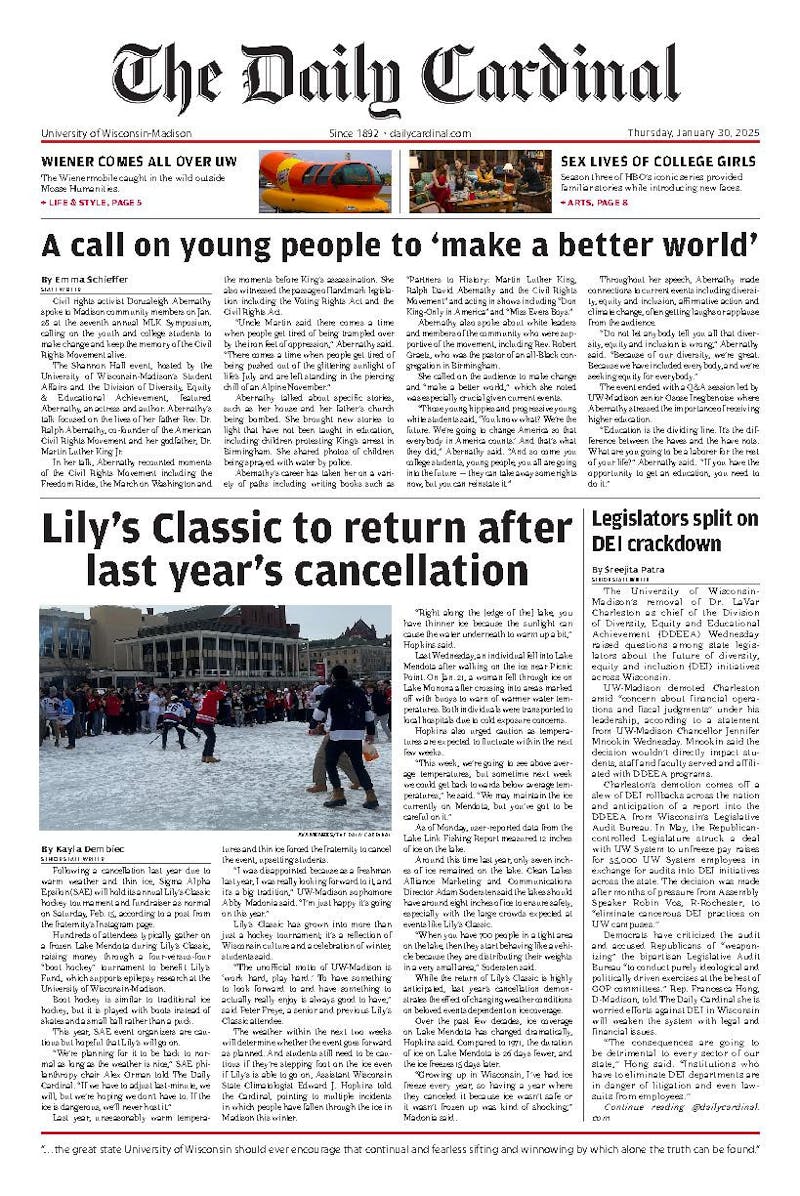advocates Monday at a panel on campus.
The government watchdog group Common Cause in Wisconsin held a debate that included several lawmakers and activists on both sides of the issue.
The panel discussed a campaign finance reform bill that stalled in the Legislature that would require private interest groups to disclose campaign financing.
Jay Heck, executive director of CCW, said the 2006 gubernatorial race between Mark Green and Gov. Jim Doyle was the most costly election in Wisconsin history, with over 33 percent of campaign dollars spent by private groups, which are not required to disclose campaign financing.
Heck said there is still an opportunity to hold a special session for campaign finance reform, as Gov. Jim Doyle called for one last November, but he did not say if it is likely to be voted on.
State Sen. Mike Ellis, R-Neenah, a co-author of the bill, said the current system gives less power to individuals and more to special interest groups.
When you dump tens of millions of dollars into the election [to private interest groups], what you are really doing is suffocating the five-dollar donation, you are suffocating the people,"" Ellis said.
Ellis said when a candidate exceeds the campaign spending limit, the bill would require matching funds for the opponent for anything over the limit.
Christian Schneider, fellow at the Wisconsin Policy Research Institute, said he is skeptical of campaign finance reform since it interferes with the constitutional freedom of speech.
According to Ellis, campaign finance reform is not a freedom of speech issue because the framework of a campaign mandates certain rules.
Schneider also said the bill, which would gain some of its funding from taxpayers, would cause citizens who already dislike negative advertisements to essentially pay for them.
State Sen. Jon Erpenbach, D-Middleton, said private groups can be involved in campaigns, but they should disclose their funding.
Bryon Eagon, UW-Madison sophomore and supporter of the bill, said students should get involved by advocating for a ""clean"" government, whether by raising issues to the public or volunteering in campaigns.






